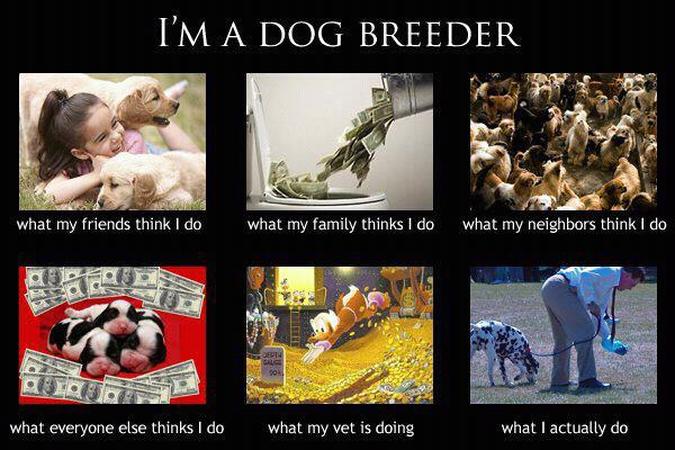CODE OF ETHICS
Gentry Boxers adheres to several Codes of Ethics
AKC Breeder of Merit
American Boxer Club
Natural Rearing Breeders Association
We subscribe to a code of ethics which includes important goals such as producing Boxers that are within the official standard for the breed, longevity, good health, and giving clients assistance and advice as needed.
WE BREED FOR QUALITY, NOT QUANTITY OR PROFIT.
WE ARE NOT BACKYARD BREEDERS.
WE ARE NOT BACKYARD BREEDERS.
We show our dogs in conformation and performance, and this gives us the feedback we need to continue to breed Boxers that are beautiful and live up to the standard written for the breed. However, with my background in animal physiology and genetics, I have always had an equal interest in becoming knowledgeable about the health problems of the breed.
All purebred dogs have inherent health problems because they are inbred to a certain degree to keep the traits of the breed. This limited gene pool unfortunately allows inherited health problems to proliferate, and I have made it my major focus to eliminate these health problems to the best of my ability. There are numerous health tests that can be performed on Boxers throughout their lives to determine if they carry inherited health problems, and I have spared no expense in decades of breeding to carry out these tests.
I lived in California for many years, and each year I would load up all of my Boxers and transport them to UC Davis Veterinary School where they were X-rayed for Hip Dysplasia and examined by an ophthalmologist for inherited eye diseases (corneal dystrophy being an issue in Boxers). Their Cardiology Department ran yearly color dopplar ultrasounds (echocardiograms) and fitted the dogs with vests to run 24 hour holter monitoring. Each year we checked for Thyroid problems as well. This was extremely expensive, but kept my breeding program free of health problems that could be tested for. As a result, I never had a client put in a claim for a health guarantee and no Gentry dogs were ever diagnosed with Cardiomyopathy, a major killer of Boxers.
Since that time, several genome tests have been made available to Boxer breeders; one for Degenerative Myelopathy (DM) and one for arrhythmogenic right ventricular cardiomyopathy (ARVC). I have added these genome screens to all of my dogs as well.
Cardiomyopathy is one of the most serious inherited diseases in the Boxer. It causes the heart to beat erratically some of the time (to have arrhythmia). These arrhythmias are usually not detected by listening to the heart with stethoscope and require more sophisticated and expensive methods to detect. An abnormal number of boxers inherit this disease, which can manifest anywhere from an early age up to late in life. This disease can cause any range of symptoms from fainting to sudden death, even in very young Boxers, a real tragedy to the loving owner.
Therefore, Gentry Boxers has been following the guidelines of the American Boxer Club’s Health and Research Committee since long before they were published, Holter monitoring all of our breeding animals once a year until they passed away. This is much more aggressive screening than is recommended. An even more aggressive screening program is outlined for AKC Breeders of Merit. We qualified for that program as soon as it was offered because we had been screening for so long. All Gentry breeding dogs fully health screened and DNA profiled, and must be clear for serious and fatal issues to be bred.
Over my many years as a breeder, I have seen the negative effects of over-vaccinatining, poor quality food, and toxins and poisons used on dogs and in their environment. I have migrated to a holistic and natural way of rearing dogs and puppies, and the results have been amazing. Chronic health issues clear up, skin and fur is smooth and glossy, teeth never need dental work, and lifespans increase dramatically. I practice and advocate natural rearing techniques and am a member of the Natural Rearing Dog Breeders Association and subscribe to their Code of Ethics.
MY FEELINGS REGARDING DEGENERATIVE MYELOPATHY
Updated January 2023
Updated January 2023
2017 Summary -- Research of Canine Degenerative MyelopathyWe lost a very loved boxer named Petie who was humanely euthanized after suffering from the symptoms of Degenerative Myelopathy (DM). Many breeders have DM in their lines and haven’t known it because we didn’t have a gene test until recent years (2009). Unfortunately, many breeders are still producing “At Risk” A/A boxer puppies who are at risk to develop this devastating and fatal disease, including, on occasion, puppies from Gentry. But we are now finding that this is less clear than we thought at first. Just because a dog is characterized "At Risk" does not mean they will develop the disease.
"For example, about 45% of Boxers are homozygous for the sod1 mutation (“at risk”), 35% are carriers and 20% are “normal.” Yet Boxers have fewer cases of DM than do German Shepherds, in which only about 15% are homozygous sod1 mutant. While all dogs with DM have one of the two sod1 mutations (Bernese Mountain Dogs have their own variant), not all dogs with two copies of the sod1 mutation have DM. It depends on other factors, perhaps other sets of as yet unidentified mutant alleles at other loci that must work together. Eliminating 45% of Boxers from the breeding population—-or worse, including the carriers and eliminating 80%—-would be a horrible decision.
“The rule is to not only use normal dogs,” says Bell, “but you need to ignore test results unless your dog has first-degree affected relatives, because penetrance is not an effect of the gene itself, but varies between breeds.” (See article referenced below on current research regarding this genome.)
This is a difficult decision for many ethical breeders, because at last count, only 17% of the screened and published boxers were clear of DM, according to OFA statistics. So in order to maintain a diversified gene pool, many breeders must make the difficult decision to prioritize their choices based on matters that are more imperative in their breeding programs as well. We do not judge those breeders and understand the critical dilemma that we face as breeders in this regard. We must consider all aspects of genetic dis-ease as well as genetic diversity when making breeding choices as well.
The new science of epigenetics is informing us of the fact that environment is just as important in triggering genetic predispositions as are the inherited genes themselves. This is a new and exciting science that offers hope for those who want to avoid triggering genes that may cause dis-ease symptoms. That is one of many reasons why we have moved to natural rearing, eliminating toxins from our home, feeding a healthy raw diet with great supplementation, avoiding the use of antibiotics, steroids and heartworm poisons, and eliminating injectable vaccines from our support program. Our dogs cannot make these decisions for themselves, thus we must be mindful stewards of our breed and pet family. We do not know if this will be a positive factor in whether a dog expresses DM, but it can't hurt to add a clean lifestyle into the mix!
This is a very important article on the science of the "DM gene" (as it has been incorrectly called). When 23 and Me Has Gone to the Dogs | Canine Chronicle. Please read it if you are interested in knowing more about DM.
Also go through the articles on the American Boxer Club site on DM here: American Boxer Club: Health
2017 Summary -- Research of Canine Degenerative Myelopathy:
Member in good standing:
American Kennel Club
International All Breed Canine Association
Houston Boxer Club
American Boxer Club
10 years in the Sacramento Council of Dog Clubs Breeder Referral and California Breeders Referral
(Twice screened and voted in)
We subscribe to the American Boxer Club Code of Ethics
And breed to the ABC Standard
Natural Rearing Dog Breeders Association Member
American Kennel Club
International All Breed Canine Association
Houston Boxer Club
American Boxer Club
10 years in the Sacramento Council of Dog Clubs Breeder Referral and California Breeders Referral
(Twice screened and voted in)
We subscribe to the American Boxer Club Code of Ethics
And breed to the ABC Standard
Natural Rearing Dog Breeders Association Member


